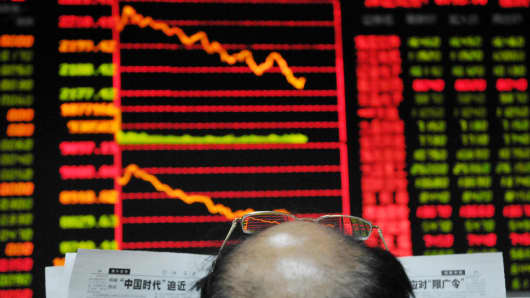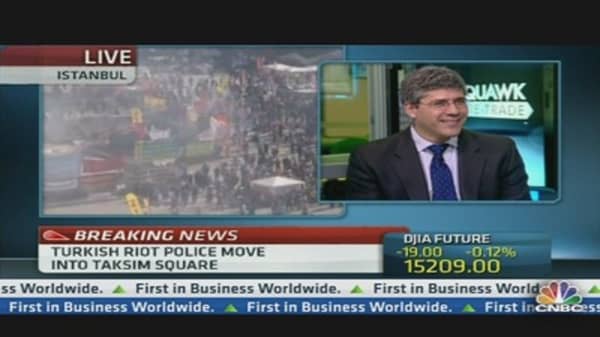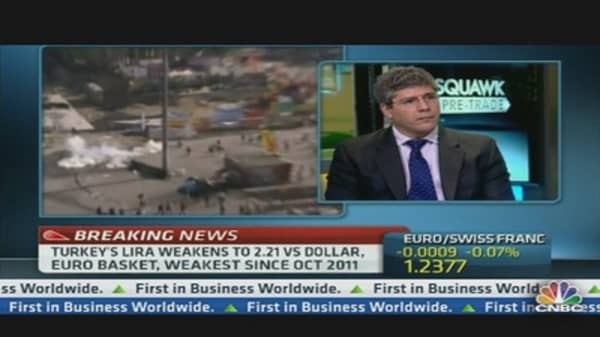'This Leopard Has Changed His Spots'
Long-term dollar bear David Bloom told CNBC he had turned bullish on the greenback, joining the wave of foreign exchange analysts who have shifted their outlooks as emerging market currencies continue to sink.
"I am the vegetarian that is now eating meat; this leopard has changed his spots," Bloom, an HSBC strategist told CNBC on Tuesday. "Two or three weeks ago I completely changed my view, and I believe now, for the next six-to-12 months, we are in a beautiful sweet spot for the dollar."
"We believe the tapering argument in the U.S., the China slowdown, the shale gas story, you add them up together and you find you are in a dollar-bullish environment. Plus the European environment is very, very weak. You add to that the currency wars – people are trying to manipulate their currencies lower – and we think we are in a dollar-bullish environment," he added.
(Read More: Why the Emerging Market Bull Run Is Over)
In a report published on May 22, HSBC upped its year-end forecast for the dollar against a number of developed countries' currencies. HSBC now predicts the greenback will stand at $1.45 against the British pound, $1.25 versus the euro, and $0.90 against the Aussie dollar.
"Across the globe, more policymakers are being drawn into the currency war, and their efforts are proving successful. The mirror of this growing pursuit of currency weakness is dollar strength," said Bloom in the report.
(Read More: Emerging Market Funds See Biggest Exodus Since 2011)
Bloom added that it was unclear whether emerging market shares and bonds will fall to the same extent as their currencies.
"I think equities and bonds are still behaving risk-on, risk-off, but currency is doing its own thing… the question is, will the other two follow?"
—By CNBC's Katy Barnato






